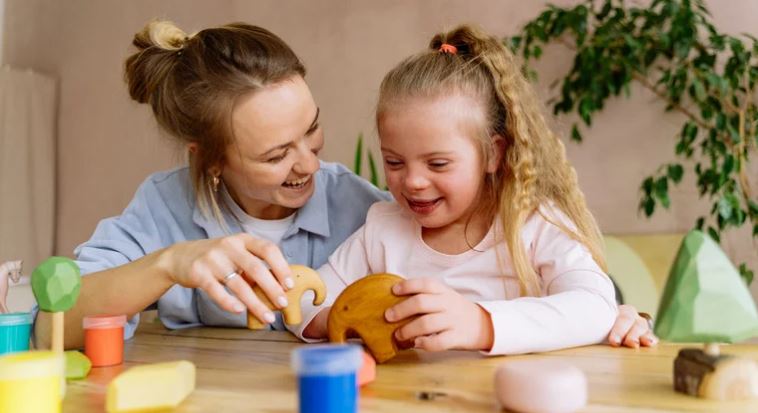Child Benefit is a vital form of financial support provided by the UK Government to assist families with the costs of raising children.
In 2025, understanding the updated rules, eligibility criteria, and the number of children you can claim for is essential for maximising support.
This comprehensive guide explains how Child Benefit works, including income-related charges, claim procedures, and what happens as children grow older. Whether you’re a new parent or managing a growing family, this article provides everything you need to know.
What Is Child Benefit?

Child Benefit is a financial support provided by the UK Government to help parents or guardians with the cost of raising children.
It is typically paid monthly to the primary carer of the child or children, whether they are biological, adopted, or under legal guardianship.
In 2025, Child Benefit continues to be a crucial part of family support in the UK, especially as the cost of living remains a concern for many households.
It offers a dependable source of income for families, supporting children from birth up to the age of 16 or 20 in certain circumstances.
Key Features of Child Benefit
- Available to anyone responsible for a child under 16, or under 20 if in approved education or training
- Paid monthly or weekly (if you’re a single parent or receive other benefits)
- Tax-free in most cases, but may be partially repaid via the High Income Child Benefit Charge
The benefit is not dependent on your employment status, and there is no limit to how many children you can claim for.
However, other factors such as income level and living arrangements may affect the total amount received or how it is taxed.
Understanding how Child Benefit works in 2025 helps families better manage their finances and ensure they are receiving the correct entitlements for each child in their care.
Who Is Eligible To Claim Child Benefit?
Eligibility for Child Benefit in 2025 remains fairly broad, making it accessible for a wide range of families across the UK.
Whether you are working, unemployed, self-employed, or retired, you may be eligible provided you meet the key criteria set out by HMRC.
You Can Claim Child Benefit if
- You are responsible for a child under 16, or under 20 if they stay in approved education or training
- You live in the UK and have a right to reside
- You are the only one claiming for the child
A person is considered responsible for a child if they live with them or they are financially contributing to their care. Only one person can receive the benefit for each child, so in cases of separated parents, an agreement must be made on who will receive it.
Additional Circumstances Considered in Eligibility
- Foster carers can claim for foster children unless the local authority pays a fostering allowance
- Guardians or grandparents caring for a child can also claim if the biological parents are not doing so
- Immigration status may affect your eligibility depending on your right to reside or any conditions attached to your stay in the UK
Verifying eligibility and ensuring accurate information is submitted will help avoid delays in receiving payments.
How Much Is Child Benefit Per Child in 2025?

The amount of Child Benefit you receive depends on the number of children you’re claiming for and their order in the family. Rates are reviewed annually and are accurate for the financial year 2025 to 2026.
Child Benefit Weekly Rates in 2025
| Child | Weekly Amount (2025) |
| Eldest or only child | £25.60 |
| Additional children | £16.95 per child |
These payments are typically made every four weeks, but can be made weekly under certain conditions, such as if you are a single parent or receiving specific benefits like Income Support.
Payment Scenarios
- A parent with two children will receive £25.60 for the first and £16.95 for the second, totalling £42.55 per week.
- For three children, the total would be £59.50 per week.
In total, Child Benefit can add up to significant financial support over the course of a year and is a vital part of many families’ budgets.
How Does the High Income Child Benefit Charge Work?
If you or your partner earns over a certain income threshold, you may be subject to the High Income Child Benefit Charge (HICBC), which effectively reduces the benefit amount through tax.
The threshold for 2025:
- The HICBC begins to apply if either partner earns more than £60,000 per year
- The charge increases gradually and will recover the full benefit if income reaches £80,000 or more
The person with the higher income will be liable for the charge, even if they are not the one receiving Child Benefit.
Your options:
- Continue receiving the payments and pay back the charge via Self Assessment tax returns
- Opt-out of receiving payments to avoid the charge but still submit a claim to protect National Insurance credits
This system ensures high earners are still able to benefit from some support if their income is near the threshold but prevents excessive subsidy for those with significantly high earnings.
How Many Children Can You Claim Child Benefit For?
In the UK, there is no limit to the number of children you can claim Child Benefit for. Each eligible child will receive the respective weekly amount, whether they are the first, second, third, or beyond.
Key considerations:
- You can claim for every child who meets the eligibility criteria
- Child Benefit is not affected by the two-child limit policy used in Universal Credit or Child Tax Credit
- Payment amounts vary depending on the order of the child in your household
This makes Child Benefit a consistent form of support regardless of how many children are in your care.
It’s important to distinguish that while other benefits have a cap or two-child limit, Child Benefit does not. Parents with larger families can therefore receive payments for all their children, subject to them being under 16 or under 20 and still in approved education or training.
Is There a Limit on the Number of Children for Child Benefit?

There is no maximum number of children for whom you can receive Child Benefit. Unlike Child Tax Credit or Universal Credit, which apply a two-child limit, Child Benefit applies equally to all eligible children in a household.
Important notes:
- Payment continues for each child as long as they qualify
- The amounts remain fixed regardless of the family size
- Claims must be made individually for each new child
This policy allows families with more than two children to receive fair financial support for each child’s needs, supporting a more inclusive benefit structure.
Child Benefit is not restricted by household income in the same way as some other support schemes. Instead, income over £60,000 triggers the High Income Charge, but not a loss of eligibility.
What Happens When a Child Turns 16 or 20?
Child Benefit usually stops on 31 August after the child’s 16th birthday, but it can continue until they are 20 if they remain in approved education or training.
You can continue to receive Child Benefit if:
- The child is in full-time non-advanced education (e.g. A-levels, BTECs)
- The course is approved and the child is not undertaking paid work over 24 hours a week
What counts as approved education:
- A-levels or Scottish Highers
- NVQs up to level 3
- Home education (if it started before the child turned 16)
Training programmes funded by the government that do not pay wages may also qualify.
When does it end?
- Child leaves education or training
- Turns 20
- Gets married or enters a civil partnership
- Begins paid work over 24 hours per week
Regular updates must be provided to HMRC if a child’s education status changes to avoid overpayments or incorrect claims.
Can You Backdate Child Benefit Claims?
Yes, Child Benefit claims can be backdated by up to 3 months, depending on when you submit your application. This applies even if the child was born earlier or came into your care before you applied.
Conditions for Backdating
- The child must have been eligible during the backdated period
- You must provide the correct documentation such as birth certificate or adoption papers
This is particularly useful for new parents who may delay applying due to hospital stays, administrative delays, or lack of awareness.
If a claim is delayed beyond three months, you may lose out on payments for that earlier period. Therefore, it’s recommended to apply as soon as possible following a child’s birth or arrival.
What If You’re Claiming for Multiple Children in Separate Households?

In situations where children live in separate households, for example due to divorce or shared custody arrangements, the rules can vary.
General Rules
- Only one person can claim Child Benefit for each child
- The claimant must be primarily responsible for the child
- In shared custody, parents can decide who receives the payment
Additional Considerations
- If each parent is responsible for different children, each can claim for their respective children
- If there is a dispute, HMRC will decide based on who the child lives with most
Separate households do not limit eligibility, but ensuring the correct person claims is crucial for accurate and uninterrupted payment.
How Do You Make a New Claim for Child Benefit?
Applying for Child Benefit in 2025 is straightforward and can be done online or via post.
Steps to Claim
- Obtain a Child Benefit claim form (CH2) from GOV.UK
- Fill in details about the child, parents, and any other relevant guardians
- Include the child’s birth certificate or legal adoption paperwork
- Submit the form by post to the Child Benefit Office or apply online with a Government Gateway account
Processing Time
- Most claims are processed within 12 weeks
- Delays may occur if documentation is incomplete or incorrect
You can choose to receive payments directly into your bank account. It’s also advised to make a claim even if you opt out of payments to ensure National Insurance credits are protected for future State Pension entitlements.
Are You Still Eligible If Your Immigration Status Changes?
Eligibility for Child Benefit depends on having the right to reside in the UK. A change in immigration status can impact this right and, therefore, your entitlement to the benefit.
Key Rules
- UK nationals, EU/EEA citizens with settled or pre-settled status, and others with indefinite leave to remain can claim
- People subject to immigration control usually cannot claim, unless they qualify under specific exceptions
If your visa status changes or you lose the right to reside, you must inform HMRC. Continuing to receive Child Benefit without eligibility can result in overpayments that need to be repaid.
For those moving from one visa category to another, it’s recommended to check eligibility during each transition.
What’s the Difference Between Child Benefit and Other Child-Related Benefits?

Child Benefit is separate from other child-related support systems such as Universal Credit or Child Tax Credit. Understanding the differences helps families ensure they are receiving all available support without confusion.
Child Benefit
- Available to most families regardless of income
- Paid per child with no two-child limit
- Not means-tested but affected by High Income Charge
Other Child-related Benefits
- Universal Credit: Replaces a range of legacy benefits; includes a child element but subject to two-child limit and means testing
- Child Tax Credit: Closed to new claims; existing claimants continue to receive unless they move to Universal Credit
- Free School Meals and Healthy Start: Available based on income level
Families can receive Child Benefit alongside other benefits, but payments from those systems are calculated differently.
Conclusion
Child Benefit remains one of the most straightforward and inclusive forms of support for UK families in 2025. It applies to every eligible child regardless of how many are in a household and offers consistent financial support throughout their early years and education.
The ability to claim for multiple children without a cap, along with options for backdating and adjustments based on income, make Child Benefit an essential part of family planning and financial stability.
Whether you are a new parent, a guardian, or someone navigating a complex household setup, understanding the latest Child Benefit rules ensures that no child misses out on the support they are entitled to.
FAQs
How long does Child Benefit last?
Child Benefit typically lasts until a child turns 16, or up to 20 if they stay in approved education or training.
Can I receive Child Benefit and Universal Credit at the same time?
Yes, you can receive both Child Benefit and Universal Credit as they are separate benefits.
What happens if both parents claim Child Benefit?
Only one person can receive Child Benefit for each child. If both apply, HMRC will decide based on who the child lives with most.
Is Child Benefit taxable income?
Child Benefit itself is not taxable, but those earning over £60,000 may need to repay some or all of it through the High Income Child Benefit Charge.
Can I get Child Benefit for adopted children?
Yes, adopted children are fully eligible for Child Benefit under the same rules as biological children.
Does Child Benefit affect other benefits?
Child Benefit does not reduce other benefit entitlements, but it may count as income for means-tested benefits.
Can I stop and restart Child Benefit claims?
Yes, you can stop receiving payments to avoid the High Income Charge and restart them later if your income drops.









